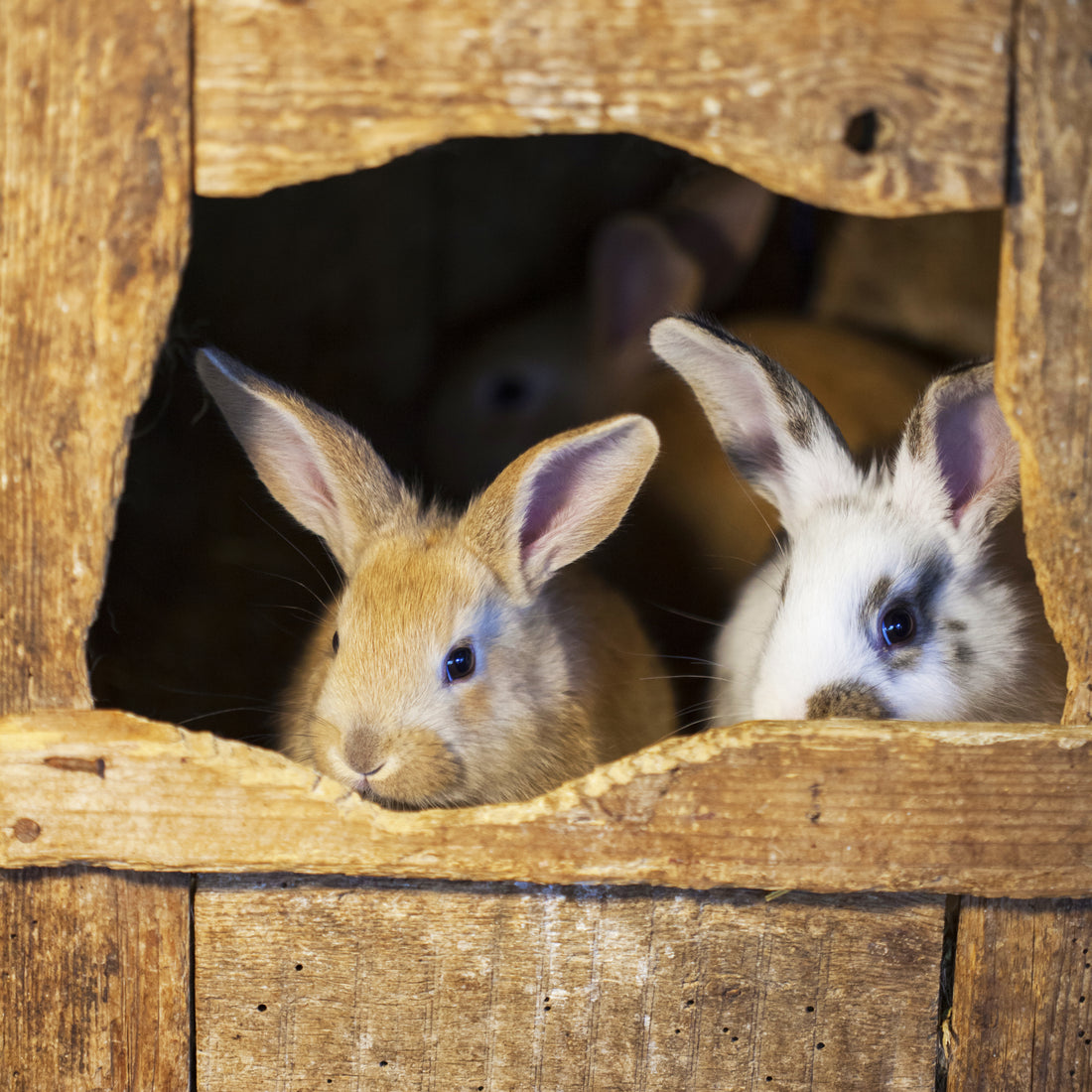Rabbits are biologically designed to chew, the nature of their continually growing teeth mean that frequent nibbling and chewing is a necessity for their health. In some cases this need can present itself with chewing and biting at their hutch, over time this can end up causing significant damage so it’s important to spot this behaviour early and then find a solution to it.
If rabbits need to chew are there any other reasons why they might turn their attention to chewing their hutch?
Yes! Just because rabbits need to chew and nibble this does not mean they will automatically chew their hutch, more often that not this type of behaviour is caused by other factors such as boredom, lack of stimulation and interaction.
First ask yourself if your rabbit is getting enough exercise? Rabbits need a lot more space than people often think, a hutch on its own is not enough (although is a perfect place for them to hide away, snooze and feel safe) and they should have access to a large space to exercise freely every day; a rabbit who does not have room to hop freely will be frustrated and stressed.
Rabbits are very social animals, if your rabbit is left alone in their hutch whilst the family are out at school and work, they are likely to feel cut off, depressed and unhappy. They should be considered part of the family and you will need to spend a lot of time interacting and playing with them. If your rabbit has started to chew their hutch assess the time you are spending with them and see if increasing it and giving them dedicated play time stops your rabbit chewing its hutch.
Does you rabbit have enough things to interest and entertain it? A rabbit whose hutch and run does not have tubes, hide outs, ramps, balls and other objects designed to entertain and stimulate it will likely end up bored and stressed. In many ways they need some of the fundamental things that we as humans also need to help us feel stimulated and fulfilled.
If you have started to notice your rabbit chewing at their hutch take the time to think about whether you are meeting their needs and providing them with the things, they need to feel happy and content. Alongside changing some of their environmental factors there are also some deterrents like anti biting spray which can also help to curb this behaviour but the first thing to assess is their space, access to entertainment and interaction with the family to see if you can improve their wellbeing & happiness.

